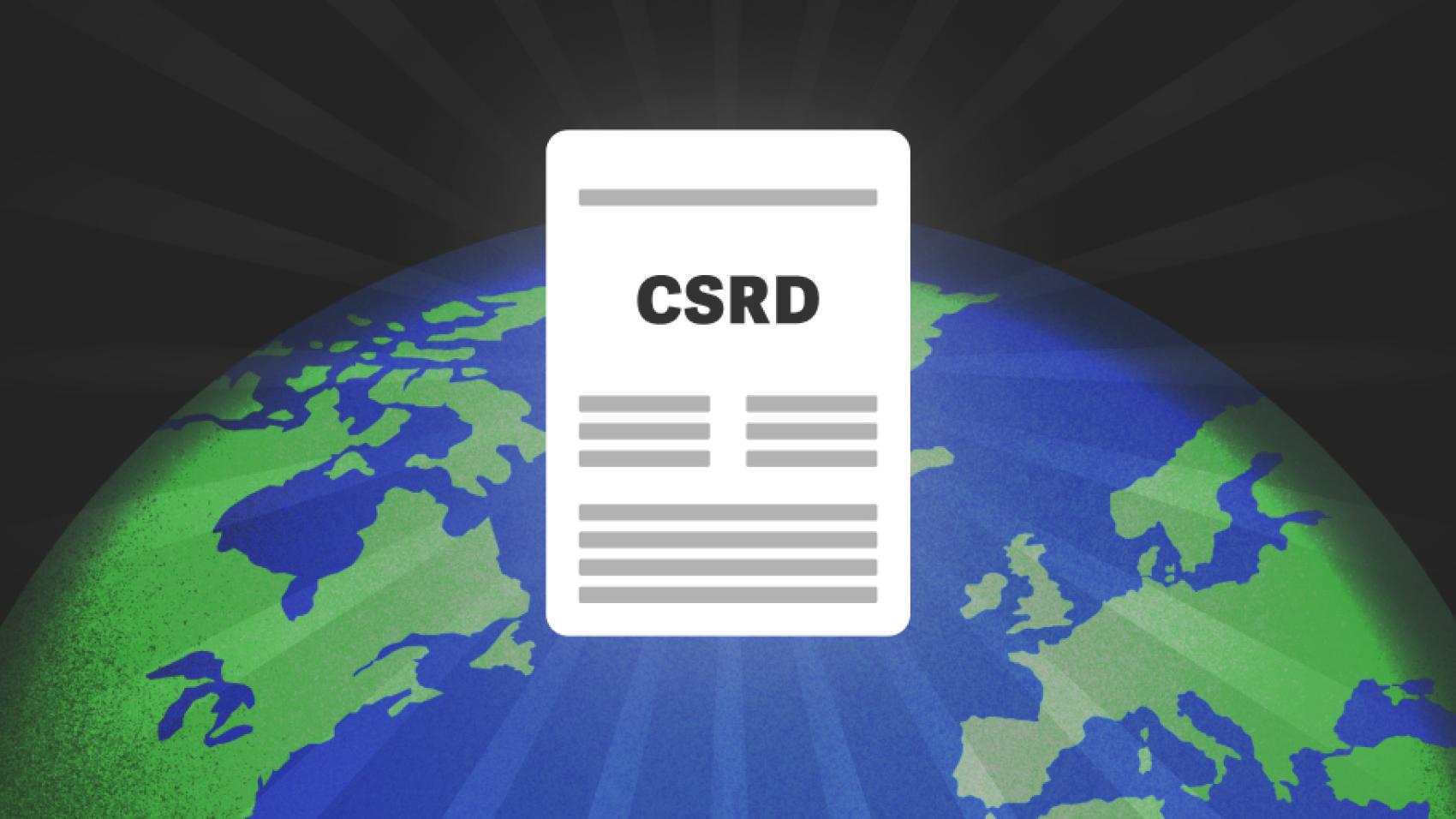Sustainability in Finance: ESG Value Creation and the Global Impact of the CSRD

The importance of sustainability in finance has become difficult to ignore.
In a world of increasingly complex risks, companies can no longer afford to view themselves as separate from their wider external contexts, and those who have a strong approach to environmental, social and governance (ESG) factors have been shown to perform better than those who don’t. In addition to this, government initiatives, consumer expectations and the rise of sustainable (or ‘green’) investments have further strengthened the link between a company’s ESG actions and their access to capital.
Business leaders are increasingly aware of the opportunity they face to drive value through their approach to ESG. For these companies, the first step to driving value in this area is by telling a compelling and accurate sustainability value creation story.
Over the years, a number of important frameworks have emerged to help guide companies in their sustainability disclosures. One of the most significant events in this area is the emergence of the Corporate Reporting Sustainability Directive (CSRD) in Europe, which is not only making ESG disclosures mandatory for thousands of companies across the EU, but changing the way these disclosures are made.
The CSRD marks the rise of a new era in sustainability reporting: one that will bring financial and ESG disclosures closer together—while presenting a new set of challenges and opportunities for finance professionals.
But what is the link between ESG reporting, sustainable finance and company growth? And where can finance leaders add value to this process?
In this article, we’ll be covering:
- The link between sustainable finance, ESG reporting and value creation
- How new regulations like the CSRD are reshaping ESG reporting practices and expectations on a global level
- The opportunities in sustainability reporting for finance teams
What is sustainable finance, what value can sustainability bring, and how are finance and ESG connected?
In recent decades, company leaders and investors alike have become increasingly aware that sustainability factors have a tangible impact on how an organisation performs. This has led to the rise of “sustainable finance”: an overarching term covering financial regulations, standards, business practices and norms that help businesses look after their long-term growth by being environmentally and socially sustainable.
The key benefits of ESG for companies
A strong approach to ESG can help a company create value in a number of ways. ESG benefits can include:
- Improved risk management practices by preparing for environmental and social disruption
- Top-line growth through increased innovation and improved company image
- Lower costs from improved energy usage, fewer external fines or unexpected costs and better waste management solutions
- Talent retention by creating meaning and purpose for employees
- Stronger partnerships with other organisations through improved social and governance practices
The role of sustainability in finance
As stakeholders at every level have become more aware of the value of ESG, ‘green’ investments and sustainable finance have become increasingly popular. Sustainable finance, also known as ESG integration, is the practice of taking ESG initiatives into account when making investment decisions.
The link between sustainability and finance is already having a measurable impact. In their 2023 ESG Outlook, Moody’s highlighted 4 key ESG factors that are directly linked to a company’s access to capital:
- Scrutiny of corporate decarbonisation plans
- Social risks driven by cost of living concerns
- Refinancing risks for lower-rated issuers with governance challenges
- An increasingly complex ESG regulatory and political landscape
Moody’s also found that one in five organisations suffers a credit rating setback following an assessment of their ESG practices, while S&P Global Ratings have noted a direct link between ESG practices and creditworthiness. A company’s ESG score is routinely taken into account during bank loan applications—a practice which is now included in the European Banking Authority’s official guidelines on loan origination and monitoring.
From sustainable finance to financial sustainability
Environmental, social and governance factors have a material impact on a company’s activities, growth and income—and this reality is now being baked into the financial system. In other words, by building a strong ESG strategy, a company can help look after their financial sustainability, or long-term ability to generate growth.
As Larry Fink, CEO of Blackrock, has stated:
We focus on sustainability not because we’re environmentalists, but because we are capitalists and fiduciaries to our clients. ...As stewards of our clients’ capital, we ask businesses to demonstrate how they’re going to deliver on their responsibility to shareholders, including through sound environmental, social, and governance practices and policies.
Larry Fink, Blackrock CEO
What will the CSRD change?
Alongside the rise of sustainable finance and an increased focus on sustainable value creation, mandatory ESG disclosures—like the TCFD framework or SEC climate disclosures—are also becoming more common.
Perhaps the most significant of these is the CSRD in the EU, which is introducing mandatory sustainability disclosures and assurance for thousands of companies and subsidiaries in the EU.
More than just its scope, the CSRD is significant because it is raising the bar for how ESG disclosures are made and assured through a number of key principles:
- More detail: Companies will need to report in far greater detail, as outlined in the European Sustainability Reporting Standards. Among other requirements, organisations will need to disclose their scope 3 emissions
- The principle of double materiality: Companies will need to look at both the external impact of their activities as well as how external factors impact the company. This approach is used to determine how and what to report
- External assurance: Sustainability data will need to be verified by an external auditor
- Treating sustainability information like financial data: Sustainability information will not be treated differently to financial data. It will be subject to the same level of formalised controls, standardised metrics and regular scrutiny
- Measurable performance: Companies will be expected to set and report against targets each year, using standardised metrics
Beyond the immediate scope of the directive, these key principles are likely to influence global investor and stakeholder expectations. As a result, companies seeking to report with confidence and keep up with current standards—whether or not they fall under the CSRD—will need to reconsider their reporting practices, from how data is verified and documented to who is in charge of what information.
The impact of the CSRD on global finance teams
As the CSRD brings finance and ESG closer together, finance teams are more likely to be brought into the sustainability reporting process, as they already have a wealth of experience in performing materiality assessments, handling vast amounts of data, implementing internal controls, and delivering the assurance and documentation necessary to support these controls.
Organisations should now be looking to their finance professionals for guidance on how to collect and report data with rigour and get audit ready. For finance professionals, this means more work—but it also presents new opportunities to bring their expertise, and their history of applying International Financial Reporting Standards (IFRS) best practices, to the table.
By helping their organisation adhere to the highest standards in their sustainability reporting, finance professionals can:
- Help protect the financial wellbeing of their organisation
- Create real value for stakeholders at every level
- Place themselves as a forward-thinking leader within their company
For finance professionals looking to progress in their career, the rise of ESG reporting with assurance therefore represents a key opportunity to stand out, help drive value and get ahead.
The key business benefits of ESG reporting
By helping oversee their company’s sustainability reporting, finance professionals can help their organisation drive value through ESG and by helping underpin the company’s sustainable value story. When done well, ESG reporting benefits include:
- More access to capital: Companies with detailed ESG disclosures are more likely to attract investments from financial service institutions, as this will align with their own climate risk management disclosures
- Improved operational efficiency: Accurate monitoring of environmental and social factors can help manage risks, avoid costly disruptions and address supply chain inefficiencies
- Stronger stakeholder relationships: Clear and honest communication on sustainability helps build and maintain stakeholder trust
- Better risk management: Strong reporting practices help organisations foresee, prepare and budget for environmental and social disruptions such as climate incidents, natural resource shortages or supply chain issues
- Reputation: ESG practices and disclosures are increasingly linked to a company’s reputational value, increasingly affecting both revenue and investment opportunities
- Future readiness: Regulations surrounding ESG disclosures are on the rise. By ensuring their company is meeting the highest level of standards and expectations, finance professionals can help their organisations stay ahead of the game.
Where finance leaders can take the lead in sustainability reporting practices
So how can you lead the charge and provide the guidance that your organisation needs to drive change?
Your exact journey might depend on a number of factors: how familiar you currently are with the world of sustainability reporting, your organisation’s ESG maturity level and which standards it needs to align with (if any). However, here are some helpful steps you can take:
1. Understand the sustainability reporting landscape
Firstly, it’s important to familiarise yourself as much as possible with the world of sustainability reporting. Get to grips with:
- Key frameworks and what the CSRD is changing
- Any current or upcoming mandatory requirements your company will need to follow
- Where global standards and expectations are aligning
To start, check out our following guides: ESG Reporting 101 and Introduction to the CSRD.
2. Gather a cross-functional team to conduct a double materiality assessment
Whether your company falls under the CSRD or not, conducting a double materiality assessment is one of the best steps you can take to understand your sustainability reporting and what steps you need to take.
Before you start, you will need to gather a cross-functional team of colleagues who understand the business from different perspectives: finance, sustainability, risk, controls and audit.
Establishing a core team with members from each of these functions will become an invaluable asset as companies integrate their financial and sustainability reporting practices.
To conduct your double materiality assessment, download our free interactive double materiality guide. This guide will take you through the process in an easy, step-by-step way.
3. Take the lead in optimising current processes
One of the best ways you can deliver lasting value to your organisation is by helping assess current processes and implementing new ones that will prepare your company for long-term challenges.
When it comes to the future of reporting, a number of challenges lie ahead, like:
- Connecting disparate teams
- Processing and verifying vast amounts of new information
- Finding time to deliver meaningful analysis of that information
- Building further controls, assurance and assessment, including ad hoc questionnaires, customer-facing reports on the supply chain, and raters and rankers
Here, modern technology can play a crucial role in making your processes faster, more efficient and more secure.
As technology becomes indispensable to businesses, knowing how to choose the right tools for your organisation is an important skill to learn as you progress in your career. To help, we’ve created a free Buyer’s Guide for Integrated Reporting Software. This guide will help you identify which areas of your reporting process need optimising, what to look out for when choosing new software, how to convince key decision-makers and how to lay the groundwork for a successful implementation.
Interactive ESG Guide: Materiality Assessment
Before tracking your organization's performance on environmental, social, and governance (ESG) issues, use this guide as a customizable template for engaging with stakeholders and assessing (or updating) which ESG topics are material to them and your organization.



